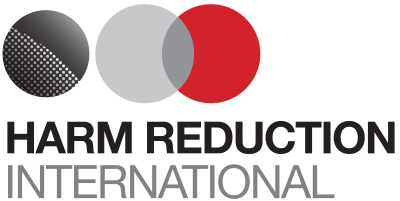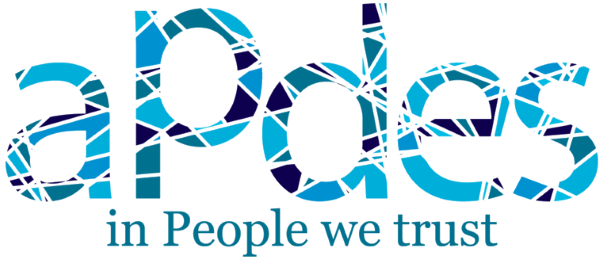These easy-to-follow steps are aimed as a guide in a bid to help maximise and amplify key points, information and outcomes. We hope this information will help. You can email us (conference@hri.global) if you have any further questions.
**The call for abstracts is now closed**
WRITING THE ABSTRACT
STEP 1 - DECIDE ON A TITLE
Choose a simple and descriptive title. It should include the idea or the result of the study, project, intervention or campaign (what you learned), the experiment or project itself (what you did) and the setting (where it happened). The title must not be too long, but it is important that you include such things as who, what, when, where and how.
STEP 2 - CHOOSE A FORMAT
Although there is no set format for an abstract, you may wish to follow one of the three offered below in order to help structure and communicate your ideas effectively:
| OPTION 1: RESEARCH ABSTRACT |
OPTION 2: PRACTICE ABSTRACT |
OPTION 3: ADVOCACY AND POLICY ABSTRACT |
|
|---|---|---|---|
| 1 | Background What are your research objectives and the problem being studied? | Issue What are the aims of this service or intervention? How the need was identified? | Issue What are the problems that motivated your work? What are the aims of your work? |
| 2 | Methodology Describe the details of how you did your research. Who did what, when, with how many, where? | Setting Provide some details such as geographical location, target population, or patterns/prevalence of local drug use. | Setting Provide some details such as geographical location, target population, or patterns/prevalence of local drug use. |
| 3 | Results Provide a summary of your main findings. What challenges did you meet? | Project Describe your service or intervention. What did you do? How did you do it? What made you decide to do it this way? | Key arguments Outline your key points. What did you do? How did you do it? What made you decide to do it this way? |
| 4 | Conclusion What impact does your work have? Describe the relevance and implications of your results, and discuss the lessons that the audience would take away with them. What did you learn? | Outcomes Describe the impact or results of your intervention. How many people did you reach or help? What barriers did you face? What would you do differently if you could start again? What lessons did you learn? | Outcomes and implications Describe the impact or results of your work. What barriers did you face? Outline what lessons your audience could learn from your work, and how it might impact on them. |
DOS AND DON’TS
DO:
Avoid statements such as ‘work in progress’ or ‘results will be discussed’
Ensure that the abstract is easy to read and understandable for the reviewer
Avoid acronyms and slang where possible
Speak of something new or innovative
Make sure your topic is important for a variety of audiences
Try and limit your presentation to address one or two key ideas only
DON’T:
Submit an abstract that does not offer anything new
Include preliminary data and inaccurate facts
Submit an abstract important to a narrow audience only
Use unclear language or bulky sentences
Exceed 300 words
HERE IS AN EXAMPLE OF AN EFFECTIVE ABSTRACT:
TYPE: Oral
TRACK: Practice
AUTHORS: Mr Joe Bloggs
TITLE: Mothers helping mothers: Innovative role for families in harm reduction, China
ABSTRACT:
------
Issue -
One of the major approaches to dealing with injecting drug users (IDUs) in China has been detoxification/rehabilitation centres. Upon leaving these centres, most IDUs return to a community that does not readily welcome or accept them. Problems with reintegration into the community combined with distrust from their own families can push former drug users to socialize with their former IDU friends and return to injecting and sharing needles.
Setting -
Gejiu City is a major route for drug trafficking in Yunnan Province, China. In 2008, the HIV prevalence among IDUs in Gejiu was 68.5%.
Project -
With funding support from USAID, FHI/China in late 2006 pioneered a new approach: the ‘Mother Helping Mothers’ intervention implemented by the Green Garden IDU project in Gejiu. Two volunteer mothers joined the project to help their own children and to change other parents’ attitudes toward IDU interventions. Many IDUs’ families initially ignored the volunteer mothers’ home visits, until the mothers invited them to participate in drop-in centre activities intended to help poor IDU families. These efforts changed attitudes, and more IDUs and their parents began to become involved in activities organised by the mothers on HIV prevention, care and support; harm reduction and MMT promotion; home visits for IDU families; stigma and discrimination reduction activities for community members; and job searching for former drug users.
Outcome -
Between September 2009 and October 2012, the ‘Mother Helping Mothers’ intervention reached 318 IDUs through home visits, and 1,612 community members. An IDU survey in Gejiu in 2010 revealed that IDUs who received home visits reported decreased needle sharing (87.7% never shared needles, 23.1% shared in the past 6 months, and 18.8% in the past month). This model can be an innovative approach to harm reduction in Asian cultures where family ties are strong.
------
STEP 3 - SEEK FEEDBACK
Once you have written your abstract, show it to some of your colleagues, and also to some family or friends outside of the field to see if they can understand it easily. Correcting mistakes at this stage gives your abstract a better chance of being accepted.
STEP 4 - SUBMIT YOUR ABSTRACT
Once you have written and checked your abstract, you can submit it online through the HR19 registration system.
The deadline for abstract submissions is 28 September 2018, but we strongly urge you to submit your work well before this deadline and not to leave it until the last moment. The deadline will not be extended.
WHAT HAPPENS NEXT?
Once you have submitted your abstract you will receive an email to confirm that your abstract has been received. By 31 December 2018, you will be notified whether your abstract has been successful or not.
THE ‘RULE OF ONE’
HR19 operates a ‘rule of one’. This means that a conference delegate may present only one paper during the conference.
We wish you success with your abstract writing!
For further information, please visit the main conference page or contact the conference team (conference@hri.global).


